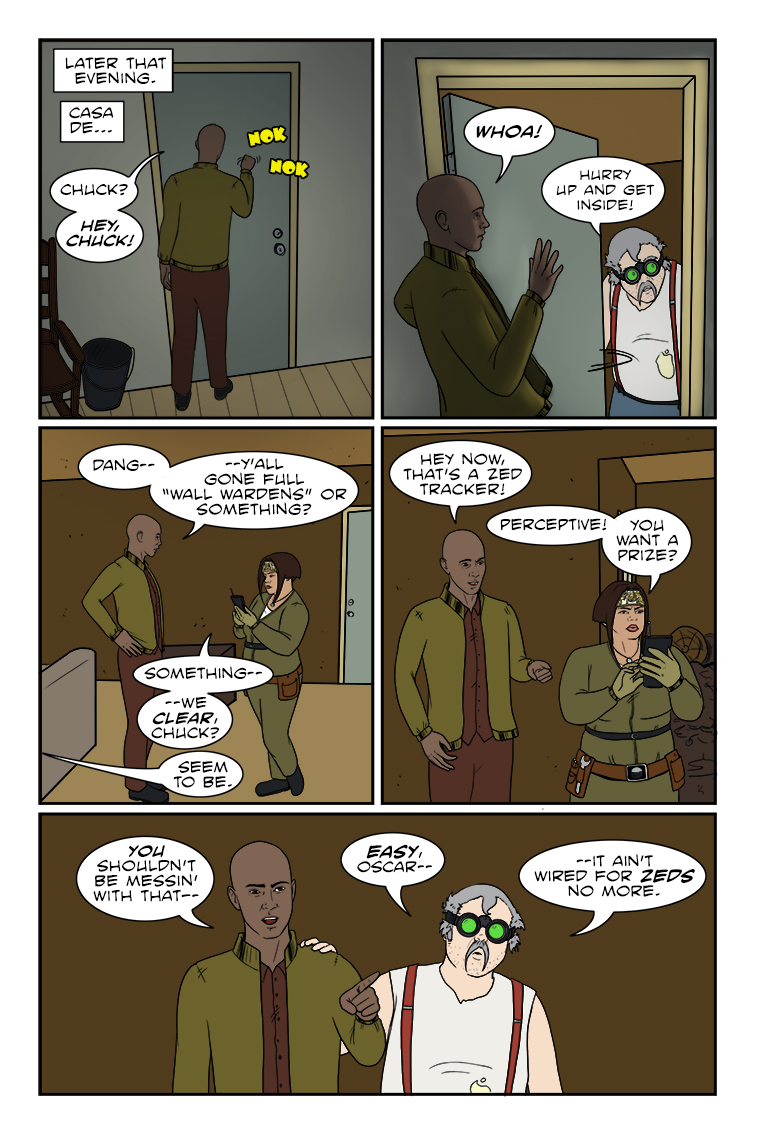Cart
Product categories
Support Us!
If you like what I do please support us on Ko-fi or Patreon.
Follow Us!
Join Our Newsletter!
Vote For Us!
Login
Polls
Events
-
Pasadena Comic Con
Dates: Jan 26
Location: Pasadena Convention Center, 300 E Green St, Pasadena, CA 91101, USA ( MAP)Details:We will be at the Pasadena Comic Con on January 26th. See some of you there for this one day event!
Purchase tickets online at here: https://www.tixr.com/groups/pcc/events/pasadenacomiccon-pasadena-comic-con-2025-115248









3 thoughts on “536 – Great State Of Tech Sass”
Anonymous
Amusing spam above … Things are about to get weird with Casa De Chuck!
Dawn
Ugh, I try to get to the SPAM quicker but we have a new kitty and I have been distracted. It is gone now. 😀
Anonymous
New kitty tops spam any day … and I enjoy getting to see it in it’s brief lifespan.
Latest Comics
#137. 131 – The Deadliest Catch
13 Aug 01, 2012
#136. 130 – Gotcha Covered
18 Jul 25, 2012
#135. 129 – A Need For Speed
17 Jul 11, 2012
#134. 128 – The Farmer And The Zedmen
14 Jul 04, 2012
#133. 127 – Time Alarm
15 Jun 27, 2012
#132. 126 – Blood Simple
18 Jun 20, 2012
#131. 125 – This Is My Distraction
48 Jun 13, 2012
#130. 124 – Count To Ten
44 Jun 06, 2012
#129. EPISODE SIX
47 Jun 04, 2012
#128. 123 – The Wild Card (END OF EPISODE 5)
44 May 23, 2012
#127. 122 – She Was Gonna Say “Customer”
49 May 16, 2012
#126. 121 – A Looming Decision
13 May 09, 2012
#125. 120 – One With A Bullet
15 May 02, 2012
#124. 119 – Gotta Laugh Or Cry
11 Apr 25, 2012
#123. 118 – Brewing And Stewing
32 Apr 18, 2012
#122. 117 – Crazy Like A Phoenicopterus
40 Apr 11, 2012
#121. 116 – The Lawn Ranger
35 Mar 28, 2012
#120. 115 – But Beer Itself
38 Mar 21, 2012
#119. 114 – Smoke, Noise, And Hollerin’
31 Mar 14, 2012
#118. 113 – A Moment With Suzie
10 Mar 07, 2012
Latest Chapters
Episode 22
Episode 21
Episode 20
Episode 19
Episode 18
Episode 17
536 – Great State Of Tech Sass
Welcome to Team Paranoid, Oscar! Spoiler alert: they really are out to getcha!
Next comic page planned for Nov. 20th. In the meantime, please accept this documentary evidence of new kitten Morgoth as he discovers the enigma that is the empty soda box.
Smoothing out the dramatic irony…
Calendar
Writer’s Blog Archives